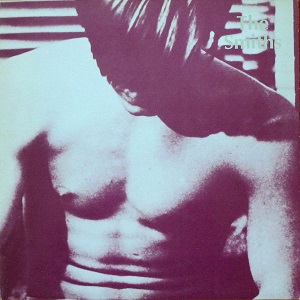
Simfy listening: The Smiths, The Smiths
My joke about The Smiths and The Cure back in the eighties was that I liked their guitarists, but not their singers, which was not a problem with The Smiths, with Morrissey on vocals and Johnny Marr on guitar, but was a problem with The Cure, with Robert Smith on guitar and vocals. In either case, it came down to that I was impressed by the bands but found the singers so annoying that I could not stand them.
Over the years, I've come to like The Cure after all; the turning point was probably the use of their song as the title song of the brilliant film Boys Don't Cry. But I've still never gotten into The Smiths, nor been taken with Morrissey as a solo artist. But Simfy led me to give their first album a listen while running recently.
The first thing I noticed is that Morrissey's voice does not annoy me as much as it used to (though I still don't like it much). In contrast, Marr's guitar work doesn't seem as impressive as it once did! (Perhaps I need to listen to later Smiths albums to get what I remembered.) While running, I began to ride a train of thought that took me back in several ways: the eighties fans of The Cure and The Smiths felt spoken to by their music and by their lyrics of disillusionment with the world, even despair at its emptiness. And this album does communicate such feelings effectively—the paradox being that such feelings derive at least in part from dissatisfaction with the consumer world but their artistic expression takes the form of consumer goods (albums). So there I was, jogging in 2010 and, as if I was back in the eighties, thinking about "the commodification of the critique of commodities." At the same time that I was off on this high-falutin' philosophy trip, I was also struck by how funny Morrissey can be, in his deadpan way, as in "Still Ill":
For there are brighter sides to life,
And I should know, because I've seen them,
But not very often ...
Back home, listening to the end of the album, I was drawn back to Morrissey's lyrics by a line from "Suffer Little Children": "Manchester, you have a lot to answer for." This made my digression away from the album seem very appropriate, what with Manchester having to "answer for" the global commodity capitalism it was, in many senses, the birthplace of. It was not a surprise to me that The Smiths generated such a train of thought; I had always recognized them as a band worth taking seriously, despite my dislike of them. And this round of listening to their first album does make me want to check out the rest of their catalog, as well as at least a bit of Morrissey's, even though I doubt I will become a big fan.
(Note to Smiths fans: By now I know that "Suffer Little Children" is not a critique of capitalism but a response to the Moors murders, so you don't have to make fun of me for not knowing that!)